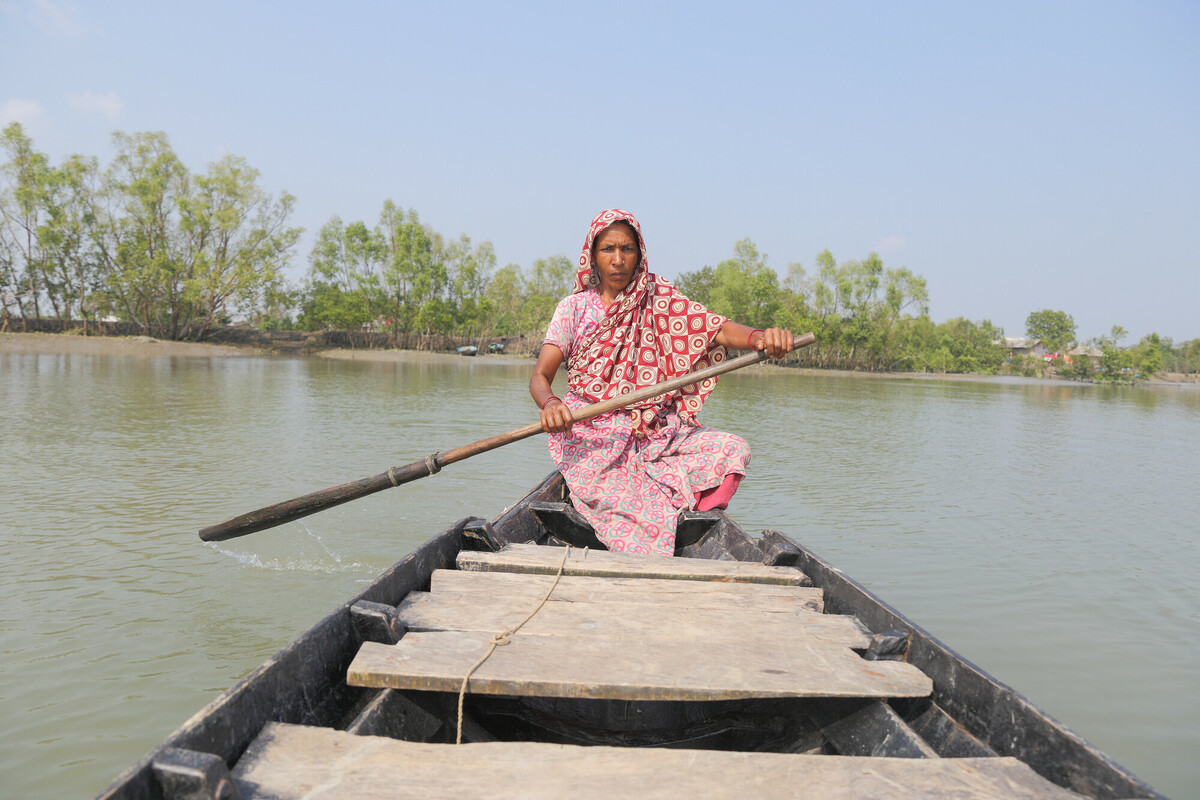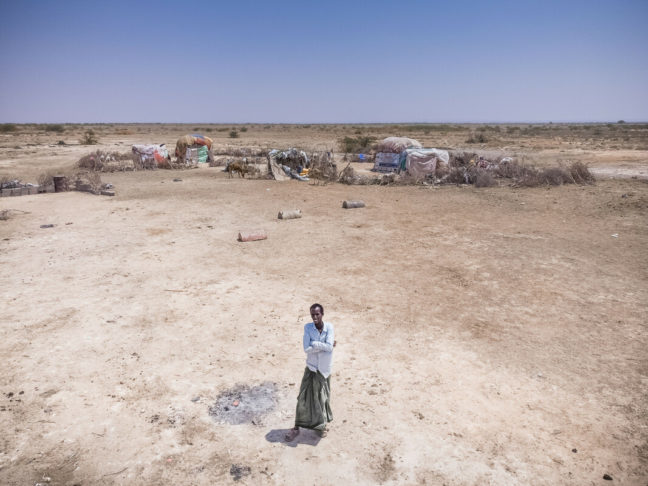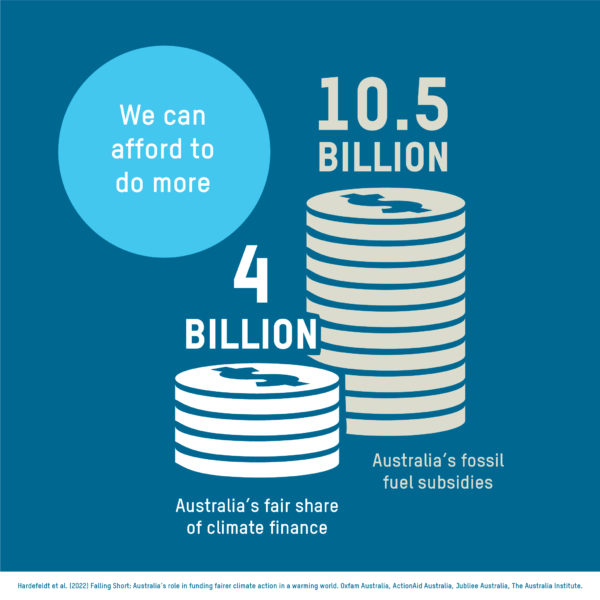
The climate crisis hurts those who are least responsible for causing it and who are also least equipped to protect themselves from it. In short, vulnerable communities at the forefront of the crisis are reeling to survive a nightmare they didn’t create. Small island nations, such as the Solomon Islands and Fiji, account for 0.5% of the world’s greenhouse gas emissions,
Our global community needs to find ways to even these scales so those most exposed to the consequences such as floods, droughts and cyclones have the resources to adapt and recover.

Climate action is a matter of fairness
Australia has profited massively from the selling of coal and gas and the burning of fossil fuels to drive our economy. While big polluters continue to fill their coffers, through windfall profits fuelled by war and generous subsidies, our Asia-Pacific neighbours are seeing their homes get washed away by floods, storms and cyclones.
Communities are under threat as rising tides swallow coastal towns and villages, and food sources that have fed families for generations are drying up. Right now, climate-induced flooding in Pakistan has affected the lives of over 33 million people, claimed 1,300 others, destroyed and damaged 1.6 million homes and killed over 700,000 livestock. This is despite Pakistan contributing less than 1% of global emissions.
Poorer countries are paying the price of global inaction and we need to find a fairer way.
What can Australia do?

Our latest joint report, Falling Short: Australia’s role in funding fairer climate action in a warming world, claims it’s time for Australia to better support poorer countries to survive and adapt to the climate crisis. The Oxfam and Action Aid report argues for greater climate finance and loss and damage funding and highlights a clear pathway for the government to do more including:
- Increase our climate finance commitment to $3 billion over 2020-2025.
- Fulfil our fair share of the global USD $100 billion (USD $4 billion annually) pledge and honour our commitments by 2025.
- Stop subsidising fossil fuels and use savings to fund climate finance.
- Support the call of Pacific nations and establish a dedicated fund for loss and damage finance at COP27.
- Ensure money gets put in the hands of those who need it most by increasing transparency and publishing how much funding is directed to communities.
- Ensure money is given as grants, not loans.
- Include the people who are most affected by the crisis in decision-making.
- Build women’s climate change leadership to address climate and gender inequality.
We need to give more climate finance. In 2009, Australia along with other wealthy countries pledged to give poorer countries USD $100 billion to respond to climate change. According to our calculations, Australia is giving approximately a tenth of our fair share of that $100 billion target.
To make matters worse last year the Morrison government gave out $10.5 billion in fossil fuel subsidies to major polluters, which could cover our fair share to poorer countries 2 and a half times over! Australia can and should pay its fair share.

We need to make sure climate finance reaches the communities who need it most and empowers individuals and marginalised groups. Our report finds that this has not been the case. Between 2019 and 2020, less than 3 per cent of climate-related investments to the Pacific actually reached local communities and only 0.35% were categorised as ‘principally focused’ on gender. Climate change will affect everyone but not equally we need to make sure no one is left behind.
The Labor government has been working hard to rebuild our standing in the international community, giving reassurances to regional partners that Australia takes climate change seriously. But more needs to be done. For us to truly stand shoulder-to-shoulder with our neighbours in the Asia Pacific, we need to implement the recommendations of this report.
You can read the full report here.